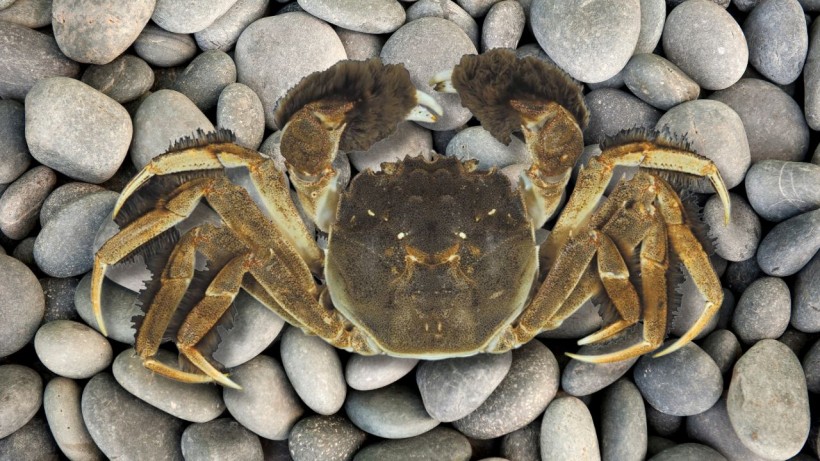Scientists have proposed a new approach to combating the invasive Chinese mitten crab population wreaking havoc on the UK's ecosystems.
These ravenous predators, noted for their unusually hairy claws and insatiable appetites, are wreaking havoc on the country's ecology.
The Guardian reports that these crabs, named one of the world's 100 worst invasive alien species, could be controlled by a newly developed Chinese mitten crab trap in Pode Hole in Lincolnshire, UK.

UK Scientists Unveil Traps to Battle Against Invasive Chinese Mitten Crabs
The Invasion of the Chinese Mitten Crab
Mirror UK tells us that the story of the Chinese mitten crab's invasion of the UK began in 1935 when they were first sighted.
Since then, their population has exploded, with millions now inhabiting the Thames and numerous other water bodies, including the Medway, Ouse Washes, the Dee, Tyneside, and the Humber.
Female mitten crabs are prolific spawners, releasing up to one million eggs at once, and their indiscriminate feeding habits threaten native aquatic life.
Dr. Paul Clark from the Natural History Museum explained, "The mitten crabs are eating our native fauna. If we start capturing these crabs and depleting their population, we might see changes in our environment for the better."
The detrimental effects of the mitten crab invasion extend to a decline in the local population of the spined loach, water voles, bivalve mollusks, small shrimp, and snails.
The Chinese Mitten Crab Trap
The innovative approach to tackling this invasive species comes in the form of a unique trap designed by Mick Henfrey and Oscar Jones.
The "experimental" trap features a letterbox construction that stretches across weirs, with openings facing both upstream and downstream.
Scientists believe the crabs will enter the letterbox and proceed up a tube, where they can be safely captured.
The trap will be monitored daily, and its success could pave the way for the installation of similar traps in crucial salmon habitats like the Dee River.
The project is a collaborative effort between the Lincolnshire Wildlife Trust, the Welland and Deepings Internal Drainage Board, and the scientists working diligently to mitigate the ecological disruption caused by the mitten crabs.
Read Also: Philippines Research Reveals Microplastics in Popular Fish Species
Ecosystem Consequences
The consequences of the mitten crab invasion go beyond just outcompeting native species for resources.
Research has revealed that these invasive crabs also feed on native fish species' eggs, including salmon and trout, which are already threatened in the wild.
Additionally, their burrowing behavior can erode riverbanks, making the battle against them even more critical.
Reporting Sightings
Members of the public can contribute to this conservation effort by reporting sightings of Chinese mitten crabs online at mittencrabs.org.uk.
By reporting these sightings, individuals can help scientists and organizations track the extent of the invasion and develop effective strategies for managing the mitten crab population.
Stay posted here at Tech Times.
Related Article: Australian Researchers Unveil Simple, Effective Method for Extracting Uranium from Seawater






